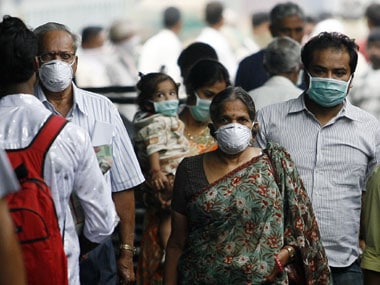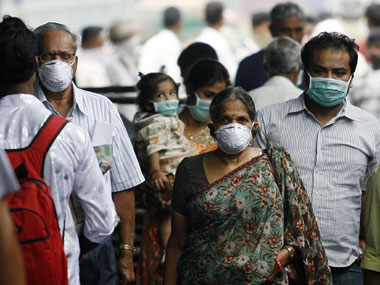More than 27,000 people have already been diagnosed with swine flu and 1,167 have died from the disease in India this year, according to the latest data from the National Centre for Disease Control (NCDC), Ministry of Health and Family Welfare. NCDC data show that Rajasthan, with at least 5,076 confirmed cases and 206 deaths, has the highest prevalence of the disease in the country this year, followed by Gujarat (4,839 cases and 151 dead) and New Delhi (3,598 cases; 31 dead). [caption id=“attachment_3911865” align=“alignleft” width=“380”]  Representational image. Reuters[/caption] Swine flu is a kind of influenza A virus infection. In 2009, the disease spread through large parts of the world, from the US and Argentina to India. A decade later, we know that swine flu isn’t as dangerous as we had thought back then but it can still lead to complications and even death. Here’s a look at what it is, and how Telangana is responding to the threat:
What is swine flu
Swine flu was originally a disease of pigs, hence the name. Humans can get it by coming in close contact with infected pigs. This can happen as a result of caring for infected pigs, dealing with their meat or eating infected pork (though cooking pork at 70°C or higher is supposed to kill the virus). Swine flu can also spread through contact with a sick person. A highly contagious viral disease, swine flu occurs as a result of Influenza A infection - there are close to 30 subtypes of this virus, only three are known to cause swine flu. Research shows that most cases of swine flu occur because of H1N1 infection, although other strains of the virus — especially H3N2 — can also cause this disease in humans. The year 2009 saw the first human pandemic of swine flu in 40 years, according to the US Centres for Disease Control - America’s national health protection agency.
Symptoms and treatment
The symptoms of swine flu are very similar to the common flu. They include cough, chills, body ache, headache, sore throat, fever, tiredness. In some cases, patients may experience vomiting and diarrhoea - though these are uncommon. Though most people with swine flu recover on their own, doctors may prescribe medicines like Tamiflu to patients. The common flu vaccine also offers protection against H1N1 infection. Pregnant women, immunocompromised patients, people living with chronic diseases as well as people aged 65 and above, and children under 5 years are at high risk of contracting the infection. The high-risk category for swine flu also includes people with lung, liver, heart, kidney, blood or neurological disease and people with weakened immune systems who are on long-term cortisone therapy.
Prevention
India has developed two vaccines for swine flu. The first, Vaxiflu-S33, is for people aged 18 and above. Side-effects like fever and pain are often mild, although the vaccine also exposes one in a million people to the risk of Guillain Barre Syndrome - a rare neurological disorder. The second vaccine is called Nasovac. First made in Pune, Maharashtra, it is an intranasal vaccine for swine flu. This vaccine cost Rs158 per dose. It has no reported side-effects. It is meant for adults and children above three years. However, its use is contraindicated in pregnant women and lactating mothers. Swine flu is often underdiagnosed because its symptoms are so similar to the common flu. If there are reports of swine flu in your area, you can take these steps to improve your chances of avoiding infection:
- Wash your hands regularly with soap.
- Drinking at least eight glasses of water a day.
- If you eat meat, cook pork at 70°C or higher temperature.
- Try to avoid contact with people who are sick. If you are caring for someone with swine flu, wear a mask over your nose and mouth.
- Try to get adequate sleep - at least seven hours.
Health articles in Firstpost are written by myUpchar.com, India’s first and biggest resource for verified medical information. At myUpchar, researchers and journalists work with doctors to bring you information on all things health. For more information, please read our article on Swine Flu_._


)

)
)
)
)
)
)
)
)



